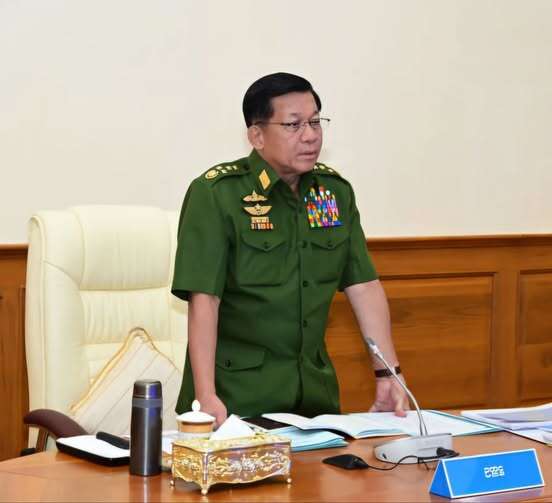
At a military commission meeting in Naypyidaw, military council leader Min Aung Hlaing revealed that Myanmar’s election law does not specify any required voter turnout percentage for an election to be considered valid. He provided detailed information about how the military plans to conduct the upcoming election. According to him, the military commission he established is responsible for providing necessary directives and coordinating efforts to ensure successful election implementation, stating they will conduct the election by any means necessary.
Min Aung Hlaing explained that other countries also do not have specific voter turnout requirements, suggesting that a turnout above 50 percent would be considered representative of the majority’s will. Regarding parliamentary sessions, he cited Article 85 of the 2008 Constitution, which stipulates that the first parliamentary meeting requires more than half of the representatives to be present for validity, while subsequent meetings need only one-third attendance. He emphasized their goal to hold elections in all possible townships to ensure at least 50 percent parliamentary representation.
Addressing security concerns during the election period, the military council leader stated that security arrangements would be made for candidate campaigns and guaranteed voter safety. He made strong assertions about the electronic voting system’s integrity, claiming it would be immune to manipulation despite the significant costs involved. However, he acknowledged the potential for increased violence during the election period and emphasized the need for effective preventive measures and swift judicial action against any perpetrators.
The military council has announced plans to conduct the election in phases from December through January 2026. This staged approach to the election process comes amid ongoing concerns about security and implementation challenges across the country. The military council’s emphasis on proceeding with the election regardless of circumstances has raised questions about the legitimacy and feasibility of the proposed electoral process, particularly given the current political and security situation in Myanmar. The military council’s insistence on conducting elections without specific voter turnout requirements appears to be part of their strategy to maintain control over the political process while claiming democratic legitimacy.



